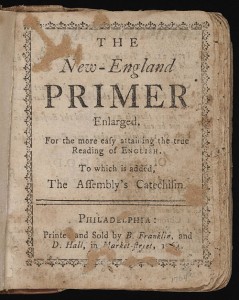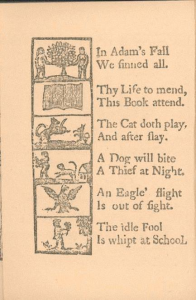The founders of our nation took the words of Proverbs 1:7 seriously: “the fear of the Lord is the beginning of knowledge.” Most of them understood this truth and stressed what they saw as obvious relationships between Biblical absolutes, a solid education, and the ultimate future of our nation.
 In 1776, not knowing he would later be president, John Adams said, “Statesmen may plan and speculate for liberty, but it is religion and morality alone, which can establish the principles upon which freedom can securely stand.” Though there were varying degrees of trust in Scripture, this was the prevailing mind-set of the founders that shaped the political, legal, and educational moorings of our Republic.
In 1776, not knowing he would later be president, John Adams said, “Statesmen may plan and speculate for liberty, but it is religion and morality alone, which can establish the principles upon which freedom can securely stand.” Though there were varying degrees of trust in Scripture, this was the prevailing mind-set of the founders that shaped the political, legal, and educational moorings of our Republic.
Along with Adams, such notables as Daniel Webster, Benjamin Rush, Samuel Adams, and George Washington all stressed the same commitment to the Bible as the main source of strength and character for their new nation. This shouldn’t be surprising since they were, for the most part, educated in America’s oldest universities. And most of them were founded by churches and preachers. William and Mary, Harvard, Brown, Rutgers, Princeton, and Dartmouth all had religious affiliations.
Harvard was founded in 1636 by Puritans who wrote the following into the “Rules and Precepts” of the University:
Let every student be plainly instructed, and earnestly pressed to consider well, the main end of his life (John 17:3) and therefore lay Christ at the bottom, as the only foundation of all sound knowledge and learning.
So foundational was Scripture to Harvard’s founding that these words can still be seen in its seal: “Truth for Christ and the Church.”
Yale followed in 1701 with its stated goal being, “Every student shall consider the main end of his study to wit to know God in Jesus Christ and answerably to lead a godly, sober life.” Columbia, then known as King’s College, purposed to “inculcate upon tender minds the great principles of Christianity and morality.” Princeton went so far as to place in its founding statement, “Cursed is all learning that is contrary to the Cross of Christ.”
But the Bible was not just reserved for higher learning in early America. The New England Primer taught the ABC’s by having school children memorize basic Biblical truths:
In Adam’s fall
We sinned all.Thy life to mend,
God’s Book attendThe Cat doth play,
And after slay.A Dog will bite
A thief at night.The Eagle’s flight
Is out of sight.The idle Fool
Is whipped at school.
The Primer used Scripture references to illustrate each letter of the alphabet. This foundation elementary textbook also led children to memorize the Lord’s Prayer, the Apostle’s Creed, the Ten Commandments, the Westminster Shorter Catechism, and John Cotton’s “Spiritual Milk for American Babes.” With the exception of the Bible itself, The New England Primer was the bestselling book in all the American colonies. Every school child in America, including most of the architects of our form of government, was trained in this way.
Daniel Webster’s cousin Noah, often called “The Father of American Education,” is most noted for his work on An American Dictionary of the English Language. This was the standard dictionary for all school children and just about everyone else for over half a century. Consider his view of education:
In my view, the Christian religion is the most important and of the first things in which all children, under a free government ought to be instructed … No truth is more evident to my mind that that the Christian religion must be the basis of any government intended to secure the rights and privileges of a free people.
However, there has been a major shift from those religious and philosophical underpinnings in the basic premise of education. The architect of our modern educational system, John Dewey, had a very different view of the Bible and God. He said, “There is no God, and there is no soul. Hence, there are no needs for the props of traditional religion.”
So removed from its Biblical foundations are the current educational system and popular thought that the Wikipedia entry for Noah Webster would be laughable if not so tragic. What has become the tenuous standard for knowledge tells us that Webster’s Dictionary and spellers gave school children a “more secular and less religious” education. Such could not be farther from the reality of Webster’s Biblical-based and permeated spellers and dictionary.
© 2011 Off the Grid News
 Off The Grid News Better Ideas For Off The Grid Living
Off The Grid News Better Ideas For Off The Grid Living

 In Adam’s fall
In Adam’s fall